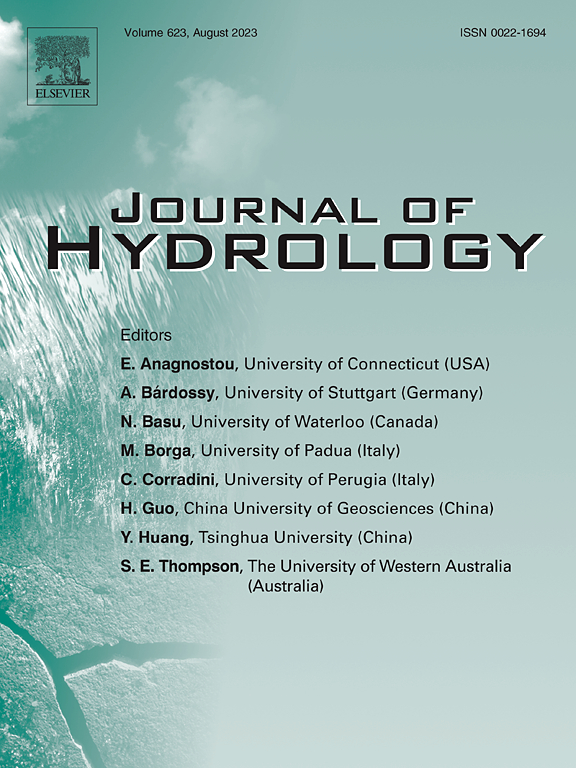Managing climate water stress: A multi-year analysis from the American Southwest
IF 6.3
1区 地球科学
Q1 ENGINEERING, CIVIL
引用次数: 0
Abstract
Climate-driven water stress and prolonged drought are intensifying competition between agricultural and urban users in arid regions worldwide. Rising populations and economic activity place mounting pressure on traditional water allocation methods, which often struggle to balance efficiency, equity, and sustainability. While prior research has examined future water demand and compared institutional approaches such as proportional shortage sharing and market-based transfers, few studies have designed and validated hydroeconomic models capable of guiding least-cost adaptation strategies at the basin scale under severe competition. Our study develops and applies a novel hydroeconomic optimization model to evaluate two alternative shortage-sharing mechanisms—unrestricted water trading and proportional sharing —using the Rio Grande Basin in the American Southwest as a case study. Simulations over a four-year period show that proportional reductions impose uniform cutbacks of 30%, while unrestricted trading reallocates water from farms to cities with cash compensation, significantly reducing economic damages across sectors. Findings demonstrate the efficiency gains of market-based institutions in reallocating water during shortages and provide actionable policy insights on water market design, investment timing, and institutional reform to enhance resilience in drought-prone basins.
管理气候用水压力:来自美国西南部的多年分析
气候导致的水资源压力和长期干旱加剧了全球干旱地区农业和城市用户之间的竞争。不断增长的人口和经济活动给传统的水资源分配方法带来了越来越大的压力,这些方法往往难以平衡效率、公平和可持续性。虽然之前的研究考察了未来的水需求,并比较了诸如比例短缺分担和基于市场的转移等制度方法,但很少有研究设计和验证了能够在激烈竞争下指导流域规模最低成本适应策略的水文经济模型。我们的研究开发并应用了一种新的水文经济优化模型来评估两种可供选择的短缺共享机制——无限制水交易和比例共享——以美国西南部的里约热内卢大盆地为例。为期四年的模拟表明,按比例减少的用水量统一减少了30%,而无限制的交易以现金补偿的方式将水从农场重新分配到城市,大大减少了各个部门的经济损失。研究结果表明,基于市场的制度在水资源短缺期间的再分配效率提高,并为水市场设计、投资时机和制度改革提供了可操作的政策见解,以增强干旱易发流域的抵御能力。
本文章由计算机程序翻译,如有差异,请以英文原文为准。
求助全文
约1分钟内获得全文
求助全文
来源期刊

Journal of Hydrology
地学-地球科学综合
CiteScore
11.00
自引率
12.50%
发文量
1309
审稿时长
7.5 months
期刊介绍:
The Journal of Hydrology publishes original research papers and comprehensive reviews in all the subfields of the hydrological sciences including water based management and policy issues that impact on economics and society. These comprise, but are not limited to the physical, chemical, biogeochemical, stochastic and systems aspects of surface and groundwater hydrology, hydrometeorology and hydrogeology. Relevant topics incorporating the insights and methodologies of disciplines such as climatology, water resource systems, hydraulics, agrohydrology, geomorphology, soil science, instrumentation and remote sensing, civil and environmental engineering are included. Social science perspectives on hydrological problems such as resource and ecological economics, environmental sociology, psychology and behavioural science, management and policy analysis are also invited. Multi-and interdisciplinary analyses of hydrological problems are within scope. The science published in the Journal of Hydrology is relevant to catchment scales rather than exclusively to a local scale or site.
 求助内容:
求助内容: 应助结果提醒方式:
应助结果提醒方式:


